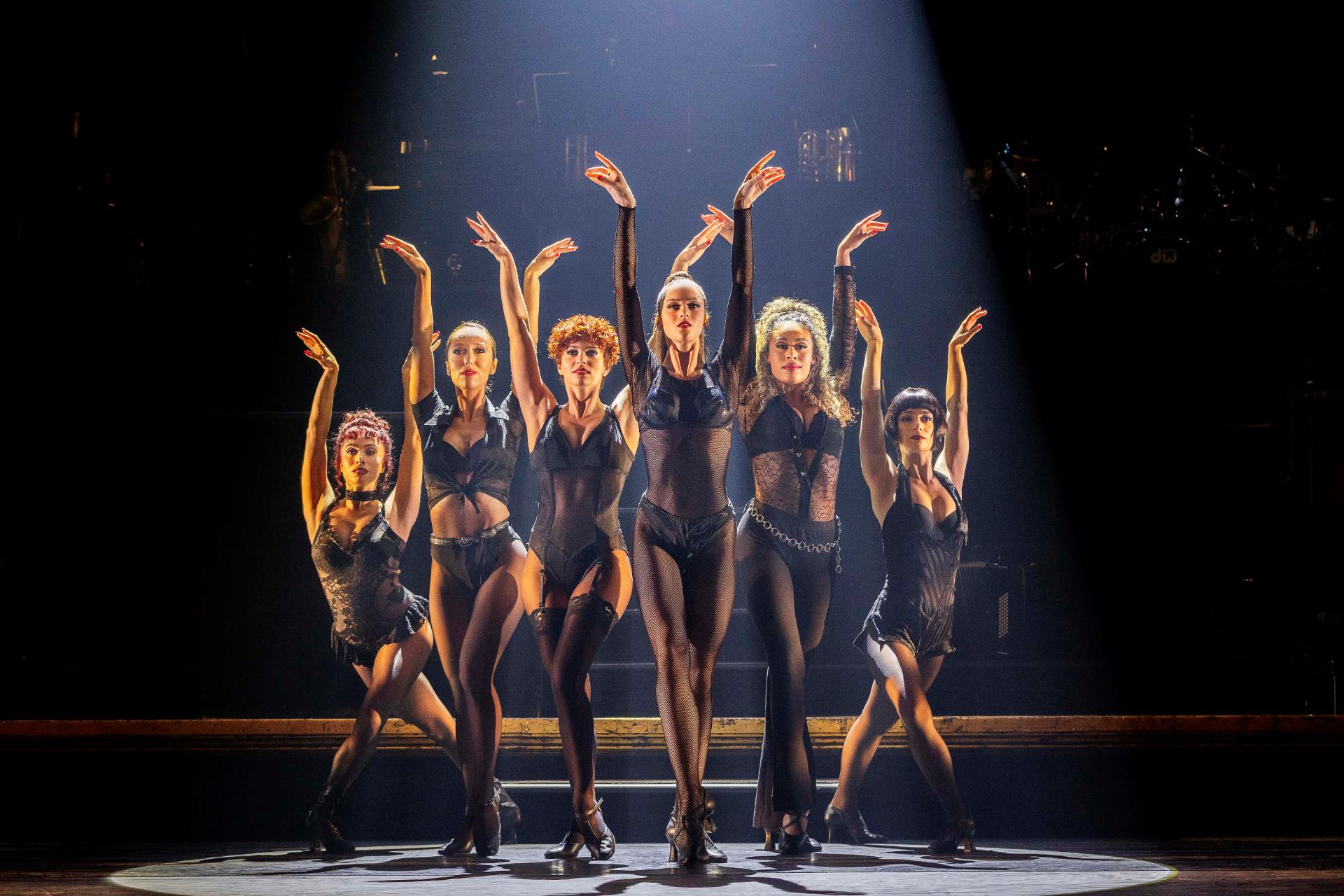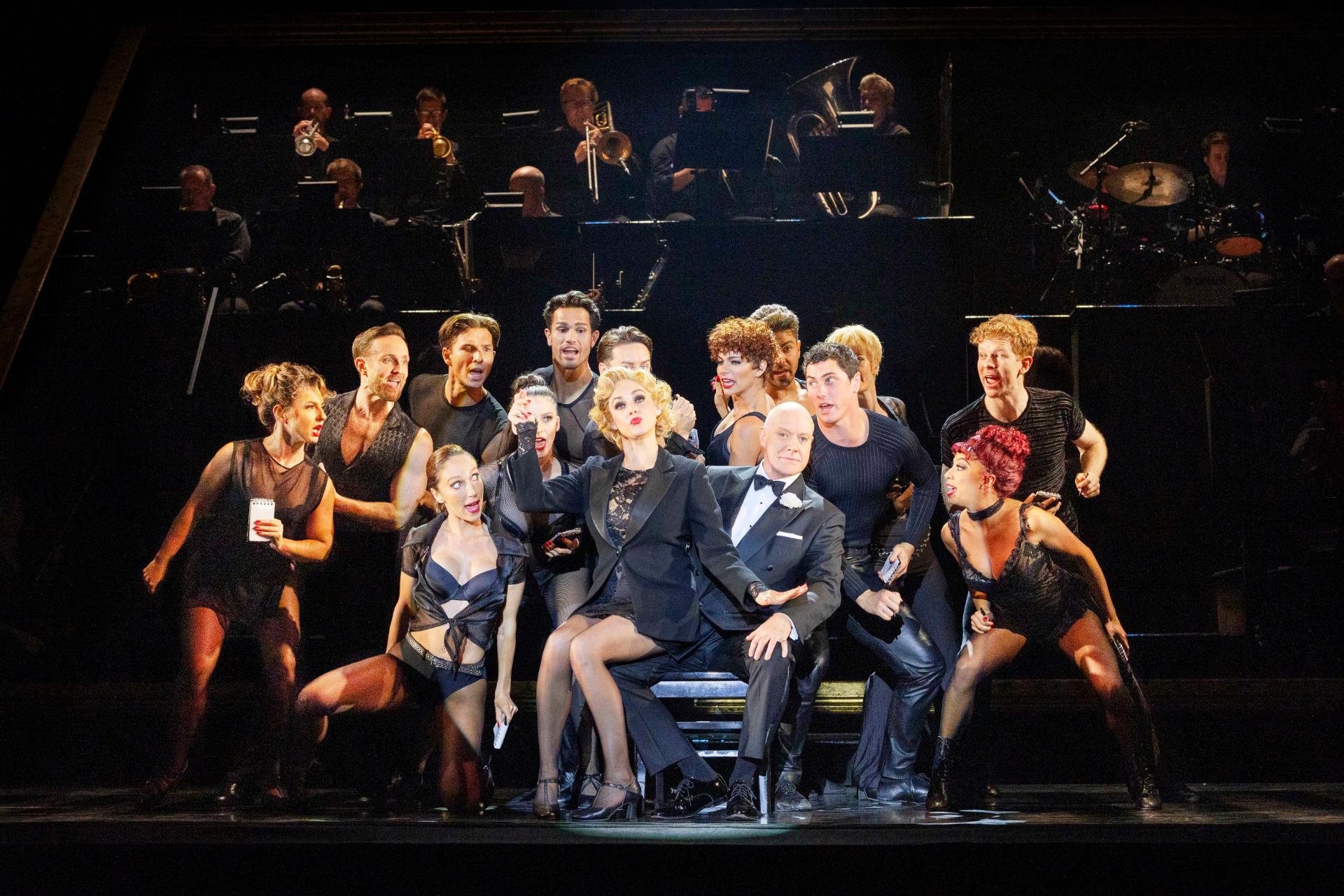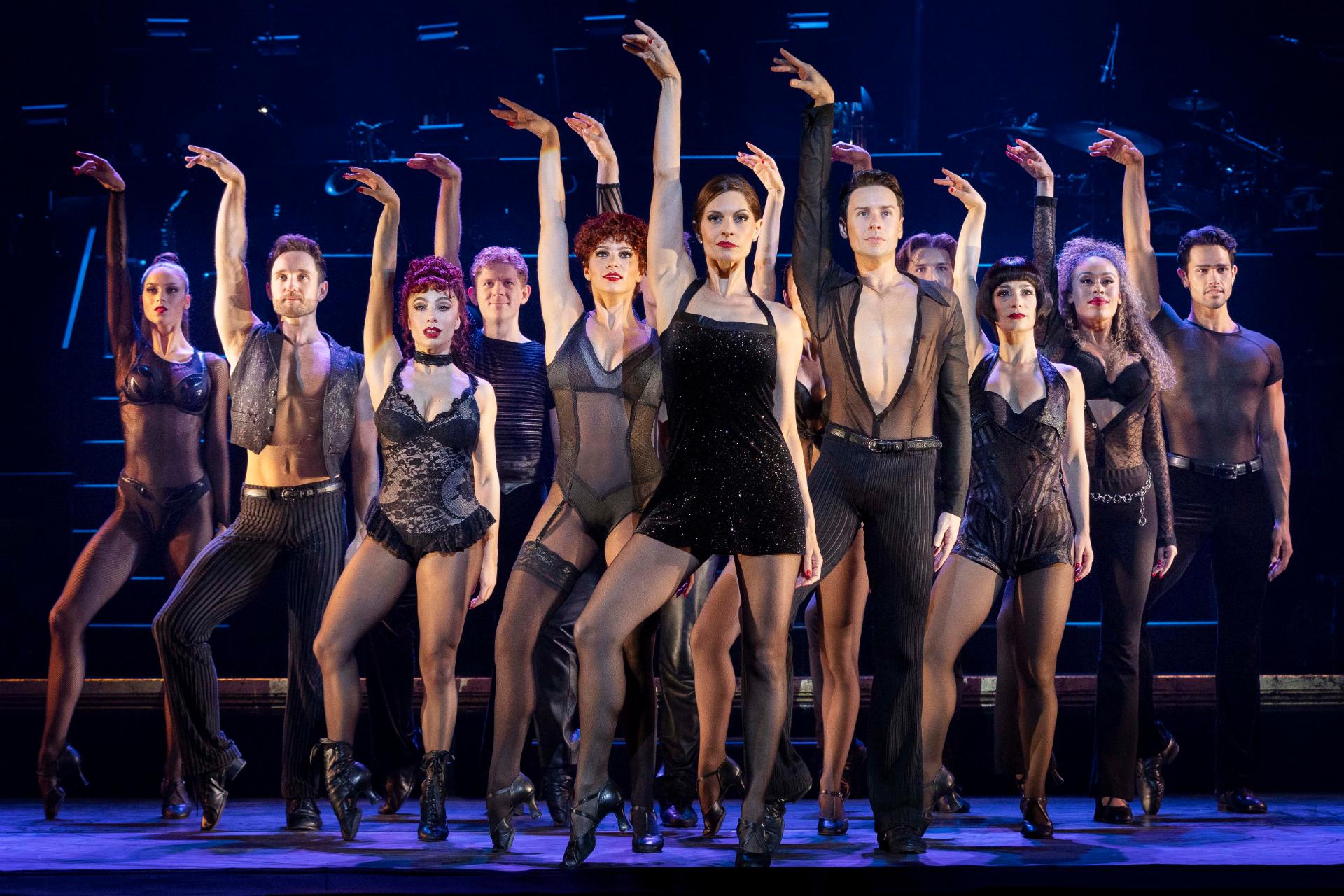











Venue: Capitol Theatre (Sydney NSW), from Jun 9 – Jul 28, 2024
Music: John Kander
Lyrics: Fred Ebb
Book: Fred Ebb, Bob Fosse
Cast: Asabi Goodman, Lucy Maunder, Peter Rowsthorn, S. Valeri, Zoë Ventoura, Anthony Warlow
Images by Jeff Busby
Theatre review
Roxy Hart and Velma Kelly were reality stars, before the advent of television. Americans were gripped by the hijinks of the two criminals, with relentless press coverage reflecting an obsession for scandal, long before click-baiting had become par for the course in the media business. It may seem some things never change, and so it is that Chicago the musical can still feel relevant, almost half a century after its initial staging.
In this incarnation, based on the 1996 revival directed by Walter Bobbie, we discover that it is not just the themes, but also its style that feels hitherto unsurpassed. From its Bob Fosse-inspired choreography, and the vaudevillian jazz score, to the female-forward representations of characters and relationships, Chicago seems to have aged only slightly, and in the most delightful ways. There is something intrinsically subversive about the show, that allows it to stand the test of time.
On this occasion, it is the ensemble that really delivers the goods. Each supporting member of cast is alluring and robust, proving themselves completely captivating, whether or not they are occupying centre stage. Lucy Maunder and Zoë Ventoura are the leading ladies, both demonstrating technical brilliance, although others with more powerful voices have certainly sung those parts to greater effect. Thankfully, the eternally dependable Anthony Warlow is on hand to deliver vocal perfection as the unscrupulous Billy Flynn. Also noteworthy is the winsome Peter Rowsthorn, who absolutely shines as the tenderly comical Amos Hart.
Women are constantly pitted against each other, in Chicago and in real life. We comply and enact repeatedly that narrative of contest and conflict, thinking only about momentary victories, and ignoring the perpetual state of failure, that inevitably results. Women embracing rugged individualism under the patriarchy, is manifestly absurd. Prescribing to anything that relies on the suffering of the majority, is plainly ignorant. At the end, Roxy and Velma are left to their own devices, and they realise that sisterhood is the only way to survive, and perhaps thrive.